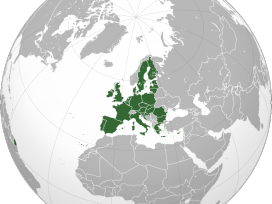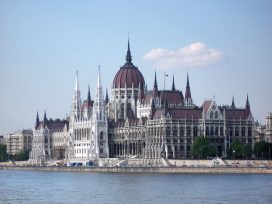86 articles

Today, more than half of the world’s population lives in a democracy. Paradoxically, at a time when the global pull of democracy has never been stronger, the crisis of democracy has become acute. European Council President Herman Van Rompuy has pointed not only to the crisis of the euro as a threat to the European integration project, but also to a European crisis of democracy, characterized by the rise of populism and a surge in “anti-politics”.
The transnationalization of politics does indeed pose a complex challenge to democratic institutions that were designed to cater to the needs of nation-states, and the critique of the “democratic deficit” of the European Union grows stronger by the day. However, the crisis of democracy is not confined to the EU. Regimes claiming to be democratic come in for vigorous criticism almost everywhere and pundits and analysts claim that we already live in a “post-democratic age”: while modern democracies are keeping up the facade of formal democratic principles, politics and government are increasingly slipping back into the control of privileged elites in a manner characteristic of pre-democratic times. This development has provided a breeding ground for populist movements whose antipathy towards political elites quickly turns into the rejection of the parliamentary system per se. Mistrust of the state and its institutions ranges from “political apathy” to violence.
Under the double-edged heading “The ends of democracy”, we have collected articles that make the problems of democracy so tangible that one actually starts to wonder if it has a future at all, but also those that return to the very basis of the principle of democracy and make clear its purpose – its ends.
Thus, Turkish sociologist Nilüfer Göle remains optimistic about the “circulation of social imaginaries” that Turkish protests surrounding Gezi Park in Istanbul triggered, and the new forms of citizenship rehearsed there. Her article, entitled “Public space democracy”, sets the tone for discussions of experimental approaches to new forms of participation as formal modes of representation and participation come under increasing strain.
For all the creativity of recent alternative approaches, mistrust of the democratic state and its institutions might never have been higher than in the wake of the NSA scandal, the latest in a series of episodes in which the technological culture of constant feedback (see Ivaylo Ditchev’s “Democracy live”) once confined to politics has expanded to include the public at large.
This is a theme that Ivan Krastev picks up on in an article written prior to the NSA scandal, entitled “The transparency delusion”. The citizen armed with a smartphone, writes Krastev, has the power to disseminate evidence of abuses of power, captured on the phone’s camera, in the name of transparency. However: “Contrary to its stated ambition to restore trust in democratic institutions, the transparency movement may accelerate the process of transforming democratic politics into the management of mistrust. The politics of transparency is not an alternative to a democracy without choices; it is its justification and blurs the distinction between democracy and the new generation of market-friendly authoritarian regimes.”
Nowhere is the question of democracy more pressing than in connection with climate change. Can democracy enact a radical change towards a sustainable order, or has it meanwhile assumed a form that above all serves to stabilize an unsustainable status quo? If so, what is then the future of democracy? Claus Leggewie and Harald Welzer argue for more participation, a position to which Ingolfur Blühdorn provides a sceptical response.
In the end, it seems as if the future of democracy hinges on the transnationalization of politics. That means a cultural, ideological, strategic and ultimately institutional redefinition of the very meaning of democracy. The result of such renegotiation of the basic principles of modern societies is hard to predict. However, it is not a wild guess that the change will be radical. Perhaps a new democratic order will even entail some form of Transnational citizenship?
The Eurozine editors


Claus Leggewie pieces together the preconditions of transnationality – migrant communities, religious pluralism and hybrid popular mass culture – with a view to foregrounding the challenge that it presents: between local cultures and global markets, how can a cross-border demos be constructed?

At some point, there is a tilt; there always is. Then we shall settle down into our new historical system. Wallerstein foresees one of two possibilities: more hierarchy, exploitation and polarization; or a system that has never yet existed, based on relative democracy and relative equality.

Disillusionment with democracy founded on mistrust of business and political elites has prompted a popular obsession with transparency. But the management of mistrust cannot remedy voters’ loss of power and may spell the end for democratic reform.

Structural problems in conventional democracies are alienating citizens worldwide, writes Stephen Holmes. Political marketing, cross-party compromise and elite withdrawal threaten to rob democracy of its original role as instrument of justice.

Though it had the potential to turn violent, Iran’s Green Movement was determined to seek dialogue with the state. In doing so, it put back in the bottle the genie of violence released by the Khomeini revolution thirty years earlier, writes Ramin Jahanbegloo.

If the democratic revolutions are to succeed in the Maghreb and Middle East, these nations must find a way of copying East and Southeast Asia’s economic success. The central element is access to the economic fundamentals that will allow citizens to become true democrats.

Hungary’s new constitution contradicts European democratic standards on numerous counts. It allows the current government to set in stone its economic and social policy; it excludes other nationalities living within Hungary while entitling “ethnic” Hungarians beyond its borders; and, most starkly anti-democratically, it undermines the independence of regulatory institutions ranging from the national bank to the constitutional court and media.
The G1000 was a citizens’ summit held in Brussels on 11 November 2011, based on the idea that Belgium’s recent political crisis was not only a national crisis, but a wider crisis for democracy. A participant describes the proceedings.
In Iran, the revolutionary dogma prevailing at the official level has obliged “post-Islamist” philosophers to provide profound justifications for Islam’s compatibility with democracy. Katajun Amirpur puts contemporary Iranian thinking on religion and politics in the context of the intellectual anti-westernism of the Khomeini era.
The challenge for a liberal democracy is to remain as such, argues Charles Taylor in conversation with Slawomir Sierakowski. Western democracies suffer two types deterioration: a misperception of really existing problems and a lack of vital tension between the demos and the government.
If the politicians can’t find a solution, let the citizens. That’s the call of a group of Belgian intellectuals and activists. They have a detailed proposal: the G1000, a meeting in Brussels on 11 November 2011. One thousand randomly selected Belgian citizens will be given an opportunity to discuss, in all freedom, the future of their country. “Because democracy is so much more than citizens who vote and politicians who negotiate.”
Emancipation, the central demand of democracy, has come to mean liberation from restrictive social and ecological imperatives. Before proposing radical participatory solutions we need to ask how democracy itself serves the politics of unsustainability, argues Ingolfur Blühdorn.
Despite renewed crackdowns on the independent media in Belarus, there are signs that the tide is turning in the battle for free speech in the country. However, victory for the democratic forces will require politicizing Belarus’ young Internet audience, writes Iryna Vidanava.
The marketization of the media combines with digital media technology to create a political order determined by public opinion. For political decision-making, the question whether opinion is right or wrong becomes secondary to its legitimacy as a form of feedback.
No one in eastern central Europe suspected that once the fight for independence was won, democracy would become a parody of itself, writes Tomas Kavaliauskas. Open disrespect for the public jars with the ideals of the Baltic Way that existed before and after 1989.



